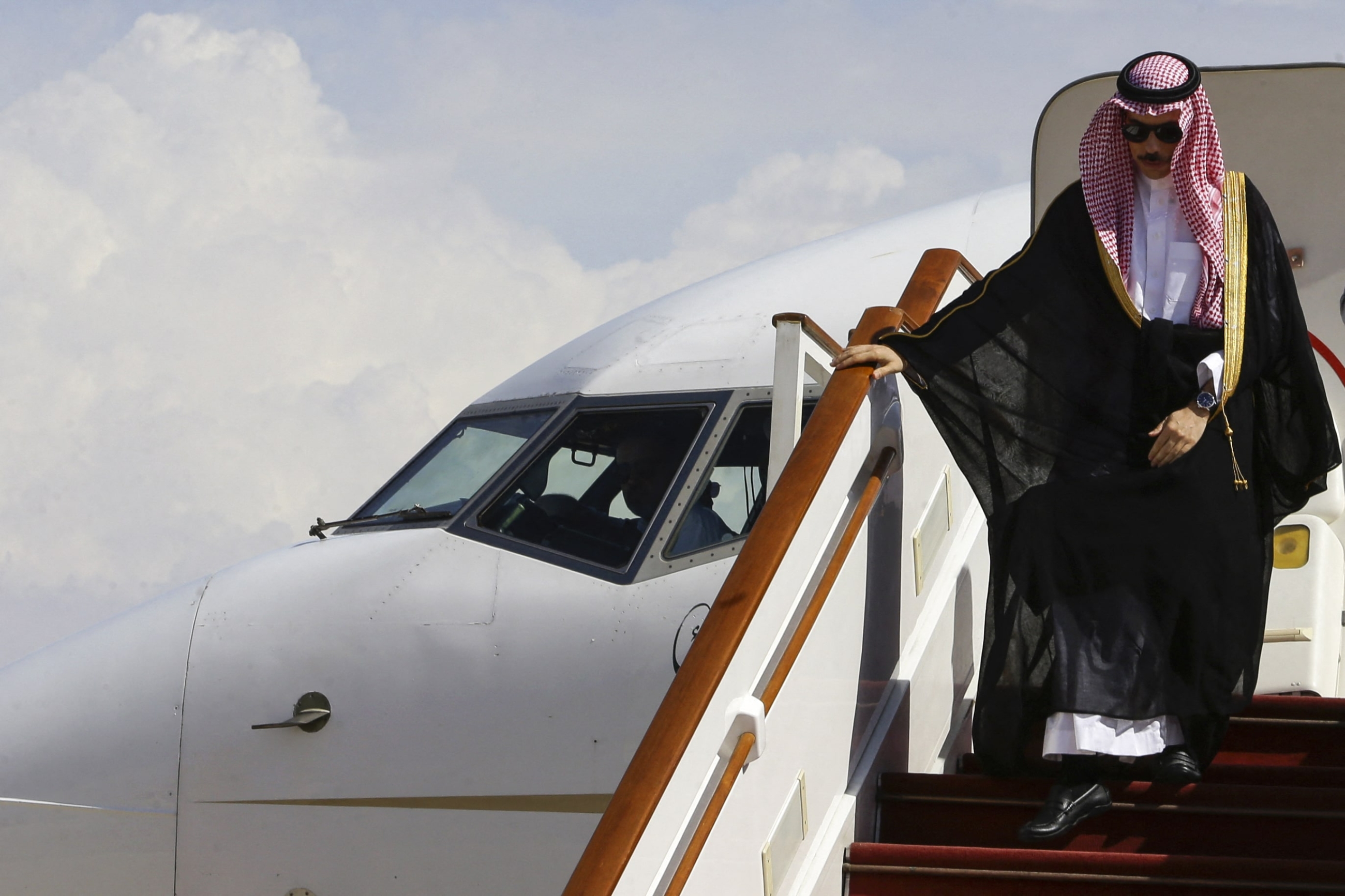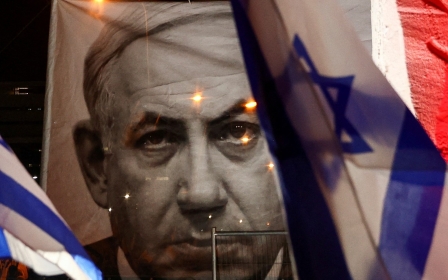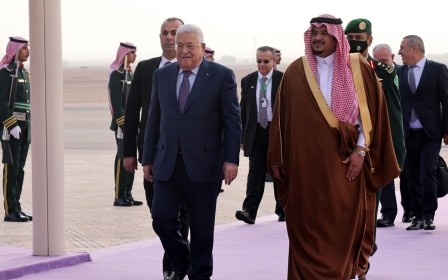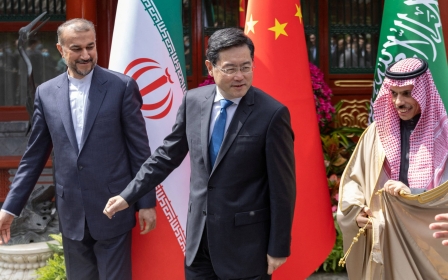Syria: President Assad meets Saudi foreign minister in Damascus

Syrian President Bashar al-Assad met with Saudi Arabia's Foreign Minister Prince Faisal bin Farhan on Tuesday in the most significant move towards ending Syria's regional isolation, according to state media.
Bin Farhan's visit, the first by a senior Saudi diplomat to Damascus since ties were severed following Assad's crackdown on pro-democracy protests, comes a week after Syrian Foreign Minister Faisal Mekdad visited Saudi Arabia.
Assad and bin Farhan discussed bilateral relations and regional issues of mutual interest.
The Saudi foreign ministry said in an online statement that the visit showed the kingdom's desire to find a political solution to Syria's conflict that would preserve the country's "Arab identity, and return it to its Arab surroundings".
Last month, Saudi Arabia and Syria agreed to re-establish diplomatic relations after a decade-long rift.
The re-establishment of diplomatic ties between Saudi Arabia and Syria is seen as the most significant development yet in moves by Arab states to bring Assad back into the fold.
Syria was expelled from the Arab League after the civil war broke out, with the majority of its members backing the Syrian opposition. Riyad had played a role in the war by providing rebel groups with weapons and financial assistance.
But in recent years, Assad, backed by Iran and Russia, has regained control over most of the country and his hold on power seems secure.
Saudi-Iran deal good news for Syria
The flurry of diplomatic activity in recent weeks follows a landmark Chinese-brokered agreement between Saudi Arabia and Iran, viewed with much interest by Damascus, last month.
A reduction of hostilities between Tehran and Riyadh touches much of the Middle East, but particularly Syria. The country has been a frontline battleground as the regional juggernauts have played out a bloody proxy war over the past decade.
With the two now on talking terms, one of the last hurdles of a Saudi-Syrian rapprochement has been removed, easing the path to a long-awaited re-engagement.
The Iran-Saudi pact is set to have profound repercussions on the regional level, and Syria is already witnessing the results.
Assad’s visit to the UAE visit in late March was not simply a trip to boost regional legitimacy. The issue of the long-term goal of re-engagement with Saudi Arabia was firmly on the agenda.
During a trip to Moscow last month, Assad told broadcaster Russia Today that "Syria is no longer a scene of Saudi-Iran conflict".
On Saturday, top diplomats from the six Gulf Cooperation Council countries - Bahrain, Kuwait, Oman, Qatar, Saudi Arabia and the United Arab Emirates - plus Egypt, Iraq and Jordan, met in Jeddah to discuss ending Syria's isolation and its possible return to the Arab league.
The foreign ministers affirmed the "importance of having an Arab leadership role in efforts to end the crisis", according to a statement released by the Saudi foreign ministry.
They also discussed "the necessary mechanisms for this role" and agreed to intensify "consultations among Arab countries to ensure the success of these efforts".
Saudi Arabia is facing pushback from some Arab states, including key allies Morocco, Kuwait, Qatar, and Yemen, over plans to bring Assad in from the cold ahead of an Arab League summit that the kingdom will host in May.
Middle East Eye propose une couverture et une analyse indépendantes et incomparables du Moyen-Orient, de l’Afrique du Nord et d’autres régions du monde. Pour en savoir plus sur la reprise de ce contenu et les frais qui s’appliquent, veuillez remplir ce formulaire [en anglais]. Pour en savoir plus sur MEE, cliquez ici [en anglais].




